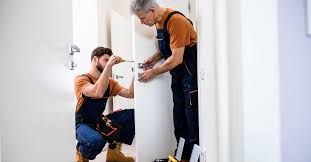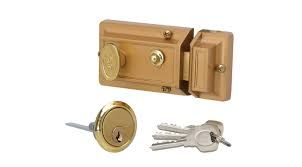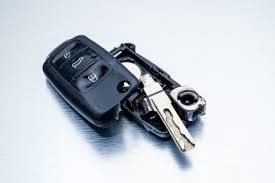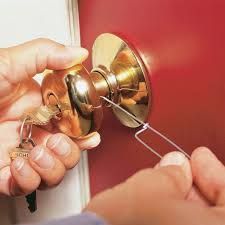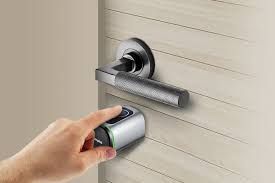Rekeying Your Home – Why You Should Do It
The importance of remodeling your new home is reduced to some aspects. Here is the scenario, which is probably something very common in the process of buying a house. For the seller, preparing the house to sell can be a daunting process. Basically, you have to put your life aside and put the house on stage to make it look nice to potential buyers. This process will usually consist of taking photos, moving furniture, cleaning up the mess if there is one, making the rooms look as big as possible, and simply giving the house a cozy appearance in general. In this process, it generally means painting, repairs or last-minute updates, etc. This contractor must be able to access the house in some way. The fact that it is with a key or while the owner is at home depends, of course, on the moment and whether there is a stay in the home of the parent or the responsible party.
Now for the buyer. Everything in the house looks well maintained and well maintained due to the work the owner did before the sale. Some real estate agents will even recommend that the rekey process be carried out. Sometimes, but, the process is not mentioned or simply forgotten due to the many things involved in the buying and moving process. Also, something very common to support my case is that many houses are currently bought at the bank due to a short sale, an auction, etc. Did that previous owner hold on to a set of keys? Then, once again, this maintenance is applied again to the contractors so that the house returns to the standards of sale or occupation.
Repairing your home is crucial. The easiest way is to get a good locksmith to come and provide the service. For practical people, it can be done by buying a kit that can cost up to $ 100 in some cases. And the third option would be to replace the locks with new locks simply. Being a locksmith, I have to promote the first option, but here’s why. The expenses related to the use of the locksmith method will generally be cheaper than buying new locks, and the locksmith will come to do all the work for you so that you can contribute to set up your home. And in second place,
Take some time and patience. It is not for the person who does not like small pieces. When disassembling the locks, the pin and springs can fall or trip through the room very easily. If a part is inserted incorrectly, the lock will not work, or the key will get stuck in the lock. Then, once again, it is better to let an experienced locksmith take care of the task.
And the third method. Replacing locks may be the most expensive option. Simply going to the hardware store is usually the easiest way to get the locks and even some free advice from the store representatives. Depending on the locks you choose, the bill can easily reach the $ 200-300 mark to buy good locks for the entire house. It is not just the entrance door. Then, to discover that these locks may not even have the same key, with their backs to the square.
Most of the time, the locks that are currently in the house are more than adequate and can be easily replaced with the right tools and equipment. Finding an honest and reputable locksmith will sometimes be the most difficult process.
If you call for a quote, remember that where you live and the general geographic location will greatly change these costs. The key to finding the best cost / complete cost is to ask many questions. Ask about travel costs, door charges, lock charges, additional hardware costs, if any, or additional labor costs. Be sure to get a written invoice before starting work. If the locksmith has a good reputation, he can quote you an exact cost as long as you have told him how many locks are involved and, sometimes, what type of locks he has. A key thing, if it sounds too good to be true, it probably is. If you notice a big difference in cost once the locksmith arrives at your home, refuse the service and call another locksmith. There are good honest locksmiths, but there are even more dishonest. Finding a good locksmith and keeping your contact information is key to having a good safe home and someone to turn to if something happens along the way.
Rekeying Vs. Changing Locks: Which Is Best?
At other times, changing lock systems is a much better choice. How do you understand which is finest: rekeying vs. changing locks? There will be situations where upgrading locks are needed. When leasing a house, the homeowner ought to select to rekey their locks. In the circumstances of a burglary, numerous property owners pick to change locks.
Rekeying a lock includes preserving the very same lock system, but exchanging the key that fits. In these circumstances, the lock performance stays, but the inner operations of the lock are changed. A brand-new key can then be used, but the complete lock itself is not changed.
Changing a lock, on the other hand, includes different procedures. In these circumstances, the complete lock is physically gotten rid of from the door. The locksmith professional loosens the lock, gets rid of the system and deadbolt, and changes them with a brand name brand-new lock.
In many circumstances, rekeying a lock is more expensive reliable than changing a lock. In some cases, the procedure of rekeying can recognize problems with the lock that need a lock replacement.
When Should You Rekey A Lock?
How do you understand which alternative is ideal for you? Depending upon the nature of your circumstance, an easy rekeying might be a terrific option. Some circumstances where rekeying a lock is perfect:
• You lost your keys without any idea who might now have gained access to
• You just recently moved into a brand-new house and do not understand who else has a key
• Divorce or separation
• You have several keys to locks at entries to your house
• You offered an extra key to a 3rd party
• A basic rekey is an economical and terrific option to keep your house secured.
When Should You Change A Lock?
There are other circumstances where it is better suited to change a lock totally this may consist of:
• After a burglary, when the lock is harmed
• Old, rusted or broken locks
• You have several types or brand names of locks in your house
• You wish to update to a brand-new design of lock (such as keyless entry).
Changing locks is not always essential. In a lot of cases rekeying is a fantastic alternative for house security. You ought to seek advice from an expert locksmith professional for a much better understanding of which choice is ideal for you.
Do I Have To Rekey Or Change Locks For My Business Or Commercial Structure?
Houses are not the only kinds of structures that can gain from rekeying or changing locks — small structures, business offices, and more need to think about these alternatives.
Some other kinds of services that gain from rekeying or changing locks consist of:
• Small companies
• Business workplaces
• Hotels
• Banks
• Grocery stores
• Retail facilities
• Renter structures
This is specifically real in the circumstances of older structures. Some changes to rekey or change a lock in a business area consist of:
• When staff members are fired, after layoffs or.
• After a burglary.
• After renovating.
• When locks remain in bad condition.
• When structures are aged.
• In preparation for assessment.
• When residential or commercial property ownership changes.
• Moving into a brand-new office complex.
• Updating crucial innovation.
Collaborating rekeying or lock change in big office complex can be an obstacle. Your group will need to set a date, notify renters or workers, and collaborate the essential switch. The right preparation can help you in performing this procedure perfectly.
In most cases, rekeying locks is a practical alternative. At other times, such as when you wish to produce an essential master system or upgrade to gain access to the control system, changing locks is essential. An expert locksmith professional can facilitate this procedure, so it is effective and smooth for you and for your renters or workers.
Call Us Any Time!
